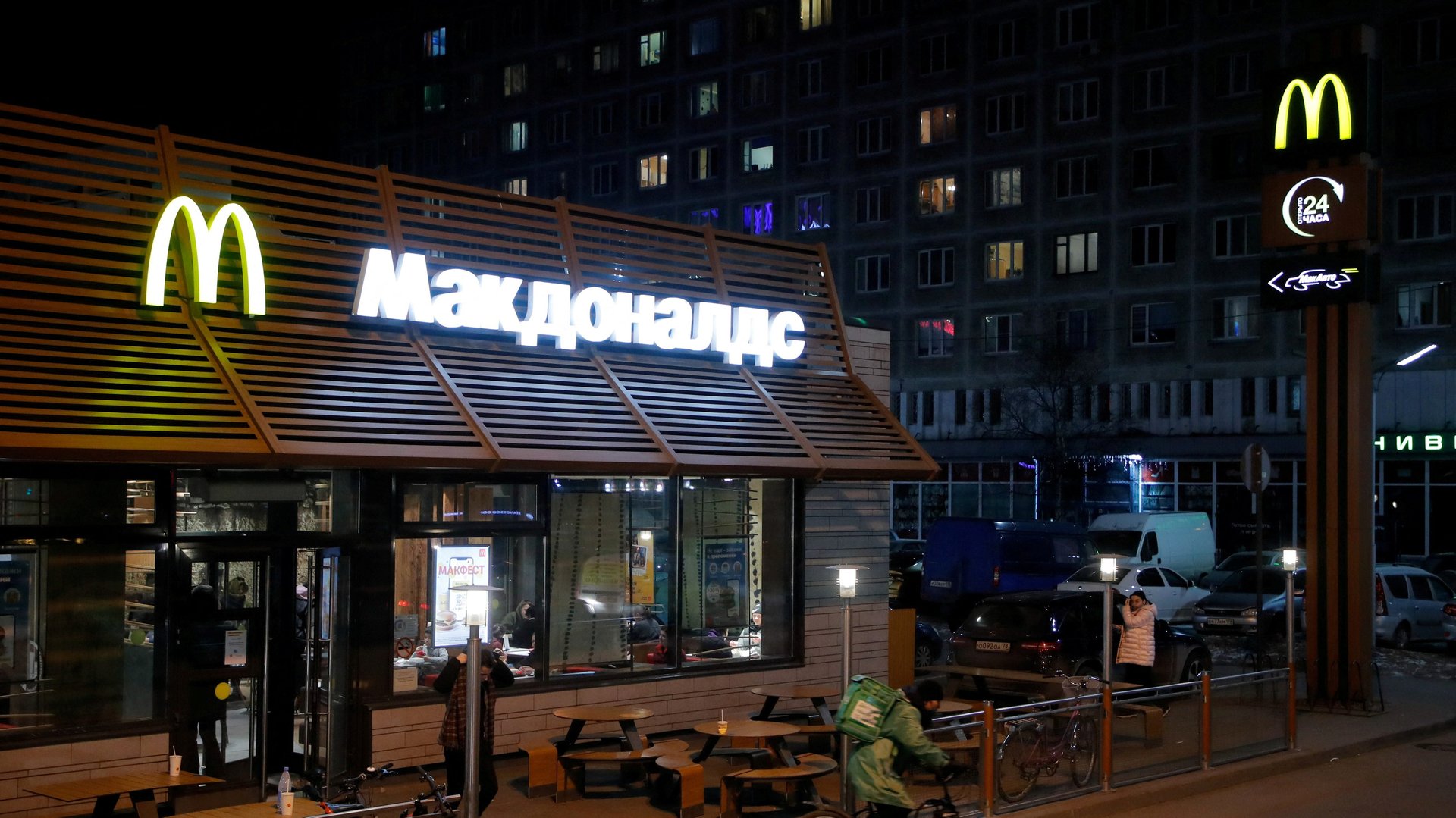The Ukraine war is creating a jobs crisis in Russia
As companies flee Russia, their Russian employees are seeing their jobs suddenly vanish. Tens of thousands of such employees will be cut loose into an economy where inflation is at a 20-year-high, and where diverse, flourishing jobs were hard to find even before the Ukraine war.


As companies flee Russia, their Russian employees are seeing their jobs suddenly vanish. Tens of thousands of such employees will be cut loose into an economy where inflation is at a 20-year-high, and where diverse, flourishing jobs were hard to find even before the Ukraine war.
McDonald’s leaves behind fast-food workers: 62,000 of them, across 850 restaurants. (They will continue to be paid until the outlets are sold to a local buyer, the company said.) Renault employed 45,000 people in Russia. Ikea’s 15,000 staff will be paid only until the end of August. Siemens had 3,000 people on its rolls in Russia, until it left the country in mid-May. Blue-collar and white-collar workers alike are joining the unemployed in a fast-building jobs crisis.
The Russian unemployment rate, which hovered around 4.6% in the first quarter of 2022, is likely to rise to 9% by the end of the year, according to a survey of analysts that Bloomberg conducted in April. Simultaneously, Russian year-on-year inflation shot up to nearly 18% in April. The combination will lead to a cost-of-living crunch that will hurt the average Russian citizen as well as the economy badly. According to a leaked document, Russian’s finance ministry expects the GDP to shrink by 12% this year, erasing a full decade of economic growth.
Russia may lose nearly 2 million jobs this year
Russian unemployment doesn’t rely only on foreign companies, of course, but it does rely heavily on being integrated into the world economy. Western sanctions indirectly imperil even workers in domestic firms. As early as March, according to a Russian official, the job status of 95,000 workers shifted to “on standby,” a precarious position similar to paid leave. In February, 3 million Russians were unemployed. A further 2 million jobs are at risk this year, according to a report from the Center for Strategic Research, a think-tank in Moscow.
The livelihoods of those employed by departing companies now depend on the fates of these businesses. Renault’s Moscow plant, for instance, will be kept open by the government, which has nationalized it and plans to use it to manufacture the Moskvitch, a boxy, Soviet-era car. “We cannot allow thousands of workers to be left without work,” Sergei Sobyanin, the mayor of Moscow, told reporters. “We will try to keep most of the team working directly at the plant and its associates.”
McDonald’s, on the other hand, has yet to find a local buyer for its restaurants. A company like Spotify, which closed its Russia office, doesn’t even have the kind of business that can be sold on to a Russian buyer. Other employees are in a kind of professional limbo. Zara, the clothing giant, has suspended its Russian operations, so its staff are being paid two-thirds of their salaries—for now.
How long that limbo will last is hard to tell. Sanctions on Russia may persist even after the war ends, walling the country off from the rest of the world’s economy. And Russia’s economy is so concentrated in a few sectors—oil and gas, mining, certain kinds of manufacturing—that there aren’t enough companies to absorb a variety of workers. If companies like Zara and Renault don’t return in the foreseeable future, the jobs crisis will sit at the heart of a crumbling Russian economy.